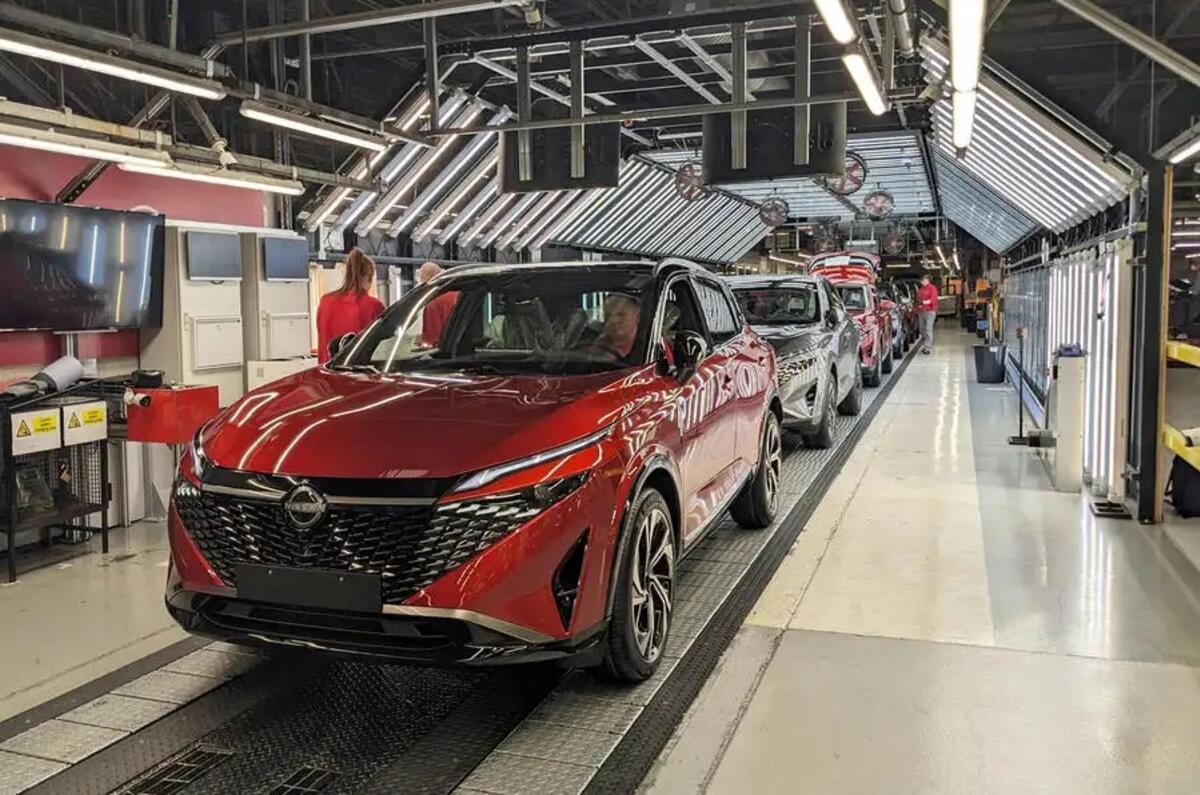New Sunderland plant will build motors for next-gen Nissan EVs
A new facility focused on producing powertrains for Nissan’s next-generation electric vehicles, including successors to the Leaf, Qashqai, and Juke, is set to be built at the company’s Sunderland site. The plant will be operated by Japan Automatic Transmission Company (Jatco), a Nissan majority-owned company that already manufactures transmissions for other automakers like Renault. This new development is expected to create 183 direct jobs, with an additional 400 jobs anticipated across the wider supply chain.
This announcement follows an investment deal between Nissan, Jatco, and the UK government, which will contribute £50 million to the project. Business Secretary Jonathan Reynolds emphasized that this initiative supports the UK’s aim to build a competitive electric vehicle supply chain, stating that it would not only boost the automotive industry but also help secure hundreds of jobs in the north-east.
The new Jatco plant marks a significant milestone as the company’s first European facility. Reynolds highlighted this as a strong endorsement of the UK economy and its efforts to attract global investment.
This investment is part of a broader £2 billion initiative by Nissan and its partners to upgrade the Sunderland plant to support the production of electric vehicles. Known as the EV36Zero project, the plan includes the construction of a second battery factory to supply packs for the next generation of the Leaf, as well as a third gigafactory, both of which will be operated by Nissan’s partner, Envision.
Alan Johnson, Nissan’s senior vice-president of manufacturing, supply chain, and purchasing, expressed enthusiasm about the collaboration with Jatco, noting that the new supplier would significantly enhance supply chain efficiency as part of Nissan’s move toward an electric future. Tomoyoshi Sato, Jatco’s CEO, also expressed gratitude for the UK government’s support, highlighting the plant’s role in Nissan’s EV36Zero initiative.
In addition to the new plant, the Sunderland site is undergoing transformations to accommodate electric vehicle production. The first model expected to roll off the revamped production lines is the new Leaf, which will transition from a hatchback to a crossover, with production expected to begin in March 2025. The factory is also adapting the former Leaf battery assembly line for the upcoming electric-only Juke, set for release in 2027, along with the electric Qashqai.
Nissan is also increasing its efforts to source renewable energy locally. Currently, 20% of the plant’s energy consumption, around 350MWh per week, comes from on-site wind and solar power. The company aims to reach 100% renewable energy, though no timeline has been set for this goal.
As part of this investment, Nissan plans to train its 6,000 employees for electric vehicle production, while also recruiting additional staff to handle an expected rise in production. The plant’s output, currently at 300,000 units annually, is expected to double once electric vehicles begin production.
However, these plans may be affected by Nissan’s announcement in November 2024 that it intends to reduce its global workforce by 9,000 employees and cut production by 20%, down to five million units per year, as part of a larger cost-cutting strategy. Nissan UK has stated that final decisions regarding job cuts have yet to be made.

Comments
Post a Comment